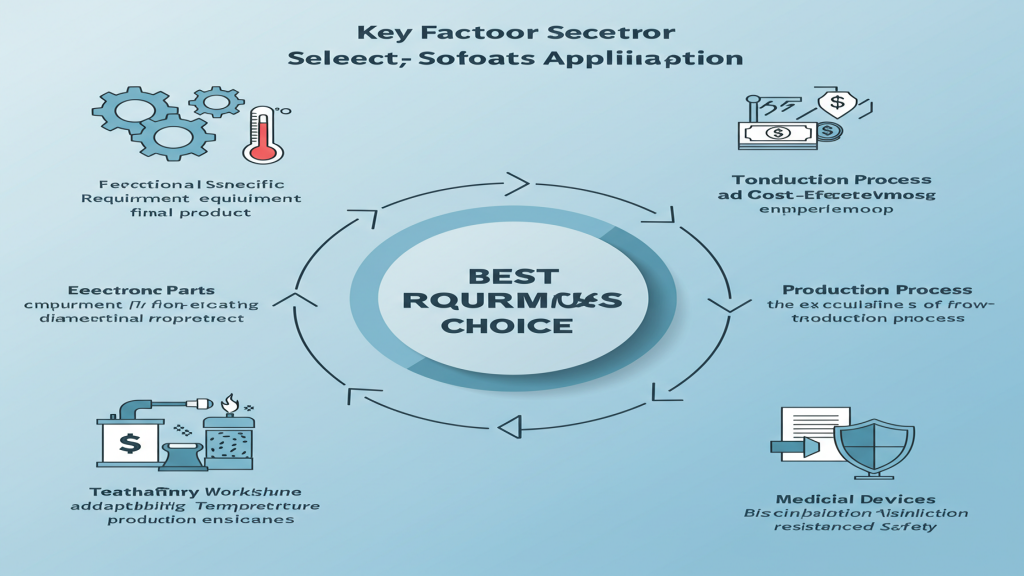
The requirements for ABS plastic sheets in precision injection molding are extremely stringent, and the choice of material directly affects product quality and corporate competitiveness. Faced with a dazzling array of ABS types on the market, choosing the "ideal type" is crucial. This article will focus on the needs of precision injection molding, explore the characteristics and applicability of different modified ABS, provide professional guidance for your material selection, and help your business succeed.
Choosing the right ABS for precision injection molding is critical to consider its flowability, shrinkage, and mechanical properties. These characteristics directly affect the stability of the injection molding process and the accuracy of the final product. Next, we will analyze the performance of several modified ABS plastic sheets in precision injection molding and explore how to make informed business decisions based on actual needs.
What are the requirements for ABS in precision injection molding?

For precision injection molding, the performance of ABS plastic sheets is crucial, especially in terms of flowability, shrinkage, and dimensional stability, which have more stringent standards. Whether these detailed requirements can be met directly determines the accuracy and production efficiency of the final product.
- Flowability: Excellent melt flow ensures that ABS can fully fill complex precision molds.
- Shrinkage: Controllable and low shrinkage is key to obtaining high-precision dimensions.
- Dimensional Stability: Excellent dimensional stability ensures that the product maintains accuracy in various environments.
- Uniformity and Consistency: High material uniformity and consistency are prerequisites for stable quality.
Which modified ABS is more suitable for precision injection molding?

Faced with the stringent requirements of precision injection molding for material properties, it is particularly important to improve the performance of ABS plastic sheets through modification methods. A variety of modified ABS have emerged on the market, and they aim to overcome the limitations of traditional ABS in precision injection molding applications through different technical means to meet higher quality and accuracy requirements.
- Glass Fiber Reinforced: Glass fiber reinforcement significantly improves the rigidity, strength, and dimensional stability of ABS, and reduces shrinkage.
- Impact Resistance Modification: Adding elastomers or rubber can improve the toughness and impact resistance of ABS, enhancing product reliability.
- Flame Retardant Modification: Adding flame retardants gives ABS excellent flame retardant properties, meeting the safety requirements of specific industries.
- High Flow Modification: Special modification significantly improves the melt flow of ABS, making it easier to fill complex thin-walled molds.
What is the best ABS choice for different applications?

Different precision injection molding application fields have different focuses on the performance of ABS plastic sheets. Therefore, it is crucial to choose the most suitable ABS for specific application scenarios. For example, electronic parts may pay more attention to the flame retardancy and dimensional accuracy of materials, while medical devices have higher requirements for biocompatibility and disinfection resistance.
- Functional Requirements: The optimal ABS choice must first meet the specific functional requirements of the final product.
- Operating Environmental Conditions: It is crucial to consider the stability of ABS in the product's operating environment.
- Production Process and Cost-Effectiveness: The choice of materials needs to take into account the adaptability and economy of the production process.
- Industry Standards and Regulations: The selected ABS must comply with the specific standards and regulations of the application field.
Reference table of ABS material selection for precision injection molding
| ABS Plastic Sheet Type | Melt Flow Rate (MFR) (g/10min) | Shrinkage Rate (%) | Dimensional Stability (Long-term) | Impact Strength (Notched Izod) (J/m) | Suitable Precision Injection Molding Scenarios |
|---|---|---|---|---|---|
| General Purpose ABS | Medium | 0.4-0.7 | Good | Medium | General housings, toys, low-precision components |
| High Flow ABS | High | 0.3-0.6 | Good | Medium | Thin-walled complex structures, parts requiring fast filling |
| Glass Fiber Reinforced ABS | Low | 0.2-0.5 | Excellent | Higher | Structural parts requiring high rigidity and dimensional stability, electronic connectors |
| Flame Retardant ABS | Medium | 0.4-0.7 | Good | Medium | Electronic and electrical housings, precision parts with flame retardancy requirements |
Commercial factors to consider for ABS
When selecting ABS plastic sheets for precision injection molding, in addition to thoroughly investigating the material's own flowability, shrinkage, dimensional stability, and other key properties, it is essential to incorporate commercial factors into the overall consideration. Cost-effectiveness is directly related to the market competitiveness of the product, and it is necessary to seek the most economical material solution on the premise of meeting performance requirements.
1.Cost-Effectiveness: Choosing the most economical material solution on the premise of meeting performance requirements is crucial.
2.Supply Chain Stability: Ensuring the stability and reliability of material supply is the key to ensuring production continuity.
3.Technical Support and Service: Choosing a supplier that can provide professional and timely technical support can reduce production risks.
4.Recyclability and Sustainability: Considering the environmental characteristics of the material helps companies fulfill their social responsibilities and gain market advantages.
Conclusion
Commercial factors such as cost-effectiveness, supply chain stability, technical support and service, and the recyclability and sustainability of materials are equally important, directly affecting production efficiency, product competitiveness, and the long-term development of enterprises. Only by fully understanding the specific needs of precision injection molding and comprehensively weighing material properties and commercial considerations can the most suitable ABS plastic sheet be finally selected.
For expert assistance in implementing for your production needs, visit our resource center or contact us. Let’s help you scale up your manufacturing with precision and efficiency!







